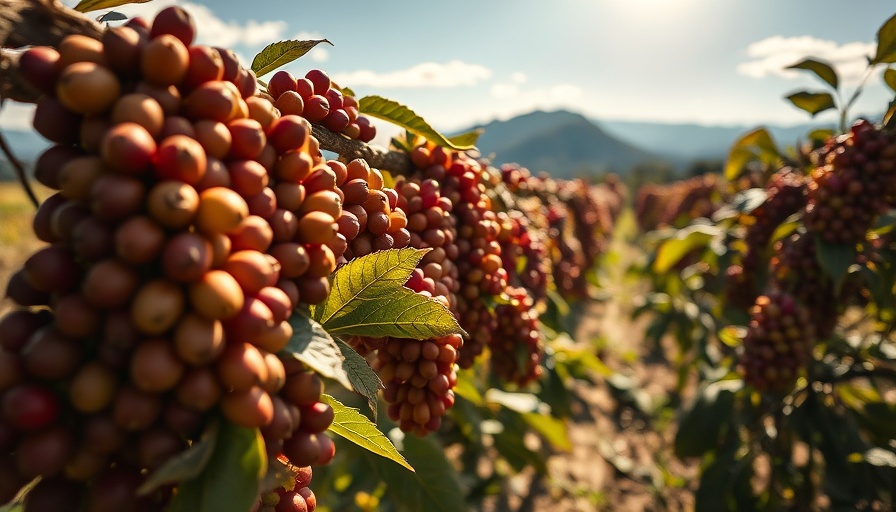
A Closer Look at Information Gaps in Coffee Production
In an ever-evolving global market, the introduction of regulations such as the European Union Deforestation Regulation (EUDR) has been met with mixed understanding among smallholder coffee farmers. This complex web of sustainability and regulations raises critical questions about how accurately information flows between developed and developing countries. In a recent sustainability project, insights gained from over 4,000 farmers and cooperatives across 10 countries illustrate how an information gap threatens not only compliance but potentially the livelihoods of these workers.
Misconceptions Widening the Gap
During conversations in Ethiopia and Uganda, farmers expressed confusion over the EUDR requirements. Surprisingly, the roots of these misconceptions stem from a lack of access to reliable information and culturally relevant translations. A notable example was how farmers feared that reforestation efforts, which were incorrectly linked to compliance, would harm their crops. This demonstrates the urgency of bridging information gaps not only for farmers’ economic health but for sustainable practices that align with international regulations.
The Importance of Information Sharing
The project found that only 25% of farmers could communicate in English, and many lacked internet access. Consequently, they relied heavily on NGOs and cooperatives for information, but this often resulted in partial or biased insights. Without comprehensive training programs and accurate materials, farmers are left vulnerable, unable to make informed decisions that align with regulations like the EUDR. As the coffee world leans towards sustainable practices, ignoring these gaps could lead to disastrous consequences for the industry.
Creating Solutions for Coffee Connoisseurs
The insights from this sustainability project illuminate the path forward. Creating clear, accessible materials that translate the complexities of EUDR into actionable steps for farmers is a crucial step. Moreover, as consumers seeking out the best specialty coffee shops, we can play a role by supporting businesses that prioritize ethically sourced coffee and engage directly with the communities producing them. This directly benefits not just farmers but enriches the experience for coffee lovers who cherish a well-informed selection of rare and specialty beans.
Conclusion: An Invitation for Responsiveness
As consumers, it’s essential to be aware of how our choices impact those at the beginning of the supply chain. Looking out for coffee shops that offer single-origin beans, partner with ethical sources, and embrace transparency in their practices allows us to bridge that information gap. Whether it’s savoring a crafted pour-over or enjoying an espresso tasting flight, knowing where our coffee comes from and supporting those who cultivate it elevates our coffee experience while encouraging sustainable practices.
 Add Row
Add Row  Add
Add 




Write A Comment